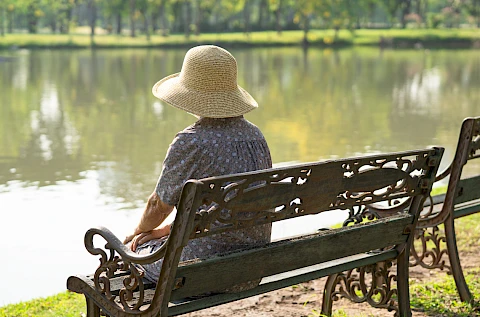
Strong social ties contribute to overall well-being, and this becomes even more true later in life. Many seniors face isolation, whether from mobility challenges, losing friends or family, or simply living alone. These circumstances can take a serious toll on physical and emotional health. Caregivers can make a big difference by recognizing the early signs of social isolation in seniors and helping them stay connected to others in meaningful ways.
Recognizing Signs of Social Isolation
Caregivers need to be on the lookout for signs that a senior may be experiencing social isolation. Look for common indicators like withdrawal from social activities they once enjoyed or a noticeable decrease in communication with friends and family. Behavioural changes such as increased irritability or mood swings can also suggest isolation.
Pay attention to emotional warning signs like sadness, loneliness, or depression. Seniors may also express these emotions indirectly by losing interest in their hobbies or neglecting personal care. On the physical side, unexplained weight loss or neglect of their environment may serve as red flags.
Health Impacts of Prolonged Social Isolation
Prolonged social isolation can have numerous adverse effects on mental and physical health. Mentally, isolated seniors are at greater risk for depression and anxiety. The absence of regular interaction can lead to cognitive decline, as well as a diminished sense of purpose and self-worth.
Physically, seniors who are isolated often experience a weakened immune system, contributing to more frequent illnesses and slower recoveries. They might also encounter issues such as high blood pressure or an increased risk of dementia. Recognizing these impacts early is crucial because timely intervention can prevent further health complications.
Strategies for Overcoming Isolation
The good news is that there are effective ways to combat senior social isolation. Encouraging participation in community activities is a great first step. Events like local clubs, exercise groups, or classes provide opportunities for engagement and making new connections.
Technology is another powerful tool. Teach seniors to use video calls or social media, enabling them to maintain relationships with family and friends, even across distances. Caregivers can explore local resources and support groups. This provides social opportunities and enriches the seniors' lives with new experiences.
Caregivers can help facilitate social engagement. Small actions like planning regular visits, partaking in shared activities, or encouraging interactions with neighbors can make a significant difference. Being proactive in these efforts helps build a stronger support system for seniors.
Is Your Senior Loved One Experiencing Social Isolation?
Addressing social isolation in seniors is crucial for their health and happiness. Caregivers are in a unique position to help identify the warning signs early and implement strategies to reconnect seniors with the world around them. Caregivers can ensure that seniors enjoy the social interactions they need to thrive by taking these steps. If you're caring for a senior and need guidance, don't hesitate to reach out. Contact us at Senior Helpers Etobicoke & Mississauga East for personalized support and information on resources available in your area, including Etobicoke West Mall, Lakeview, Long Branch, Markland Wood, Mineola, and surrounding communities. Together, we can help seniors lead connected and fulfilling lives.